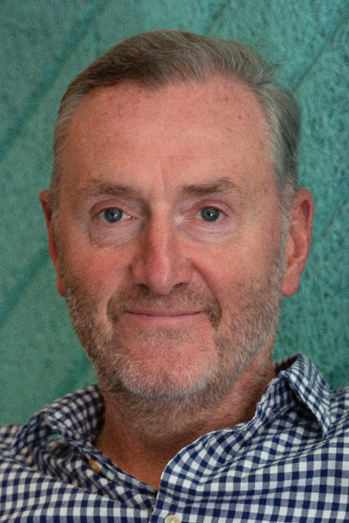Time to admit it: media shops are now the advertiser’s de facto lead agency

Opinion
Media agencies are have become more influential to advertisers than creative advertising shops. The boldest ones now have an opportunity to move beyond media and start setting marketing strategy more generally.
‘Lead agency’: who is it, and who will it be in future?
An old-fashioned concept, perhaps, in these collaborative times – and in a world where so much advertising business is done directly, without troubling an agency at all – but your answer matters if you are buying or selling advertising services (or even picking advertising stocks).
Now, more than ever, brand-owners must model how their long list of suppliers work together to maximum advantage… or at least to minimise friction, overlap and land-grab.
Some (larger) clients outsource that leadership to a team formed at holding group level, some create a kind of ‘brains trust’ drawn from various advisory quarters, but many still assemble disparate advisory partners and look for one to lead.
So in those latter circumstances, who is best placed: creative agency, media agency, other?
The rise of consultancies has hit creative agencies hard
I’m aware that even the framing of those options dates me. When I joined the advertising business, media independents – and media independence – were in their infancy. The ‘ad agency’ created the ads and planned and bought the media as the de facto lead in a client roster often only populated otherwise by a below-the-line or PR agency.
But first media left the building, then media planning came loose, and then – most dramatically – the digital asteroid hit the analogue advertising planet, changing the agency landscape just as surely as it changed the media landscape.
Putting to one side the rise and fall of the digital specialists and – writing as someone at the wheel of creative agencies across those decades of change – a confession is overdue.
Each of those consecutive twists seemed to nudge clients’ media partners ever further into the advisory ascendancy, while simultaneously thinning creative agency margins. (These had historically been borne aloft by commission on media spend, after all.)
More recently, I’ve seen the advisory yellow jacket donned by a purpose consultancy (and there’s an obvious case for that to be at least temporarily judicious: because if purpose doesn’t drive everything, what does?)
It’s obvious that for many newer and direct-to-consumer clients, their performance media partner is (for now at least) the advisory big dog.
And, if the modern brand is truly what it does rather than what it says, we could also make the case that strategic and creative leadership might best come from the client’s customer-experience agency.
So: a plethora of agencies, from which a client must choose a lead (and, I suspect, no ‘one-size-fits-all’ answer).
I used to bat, of course, for the creative agency’s rightful place as lead agency. When media was in short supply – and options largely limited – creative ideas and execution were the source of most leverage for advertisers. Responsibility for the content of communication and its commercial outcomes (rather than just its media outcomes) also seemed to nudge the creative agency to strategic centre stage. And creative agency planners were a talented bunch, capable of both brand design and ad tweaking despite the discipline’s occasional internecine squabbles.
But today, the creative effectiveness dividend is less obvious than ever: even the IPA agrees. Its leverage has apparently diminished as advertising money and attention has flooded from long (brand) to short (activation).
Meanwhile, ‘short versus long’ has perhaps become the biggest over-arching advertising decision for the modern client. And ‘short versus long’ is a judgment that media agencies have as much right to answer or influence as creative agencies do, let alone the superior resources to then execute and iterate.
Bold media agencies have a chance to do even more
It’s no coincidence that the recent results from Publicis Groupe and Dentsu have stressed the contribution of ‘data-driven transformation’. That’s the corporate narrative – and, in fairness, the strategic plan – driving each holding group, after all. Scratch further beneath the surface and you will find that in the more orthodox sphere of ‘comms’, media is outperforming creative yet again.
 Laurence Green
Laurence GreenIt’s the latest confirmation that the ‘advertising’ holding groups are so much more than advertising conglomerates (and indeed, desperate to be understood and rated accordingly) and that we are witnessing the ongoing transfer not just of margin but advisory primacy from creative to media and beyond.
So it seems like time to toll the bell and acknowledge that – at least in the more orthodox field of comms – media agencies are the new de facto lead agency: and not just because of their responsibility for the ever more complex disbursement of media funds but for strategy-setting more generally.
And here’s the interesting bit: that top table influence means that the time may be ripe for bold media agencies – whether in their own right, or as part of a data-driven transformation team – to step forward more formally as the authors of brand direction (rather than just media direction)…and even creative execution.
Those latter roles, previously resident elsewhere, are now up for grabs as creative agency influence and margin wanes. That strategy might have new owners in changing times is unsurprising, but perhaps we are about to witness a Back to the Future moment where creative services return to their birthplace as part of a media contract and/or agency.
It’s arguably surprising that there have been so few attempts to build a creative department in a media business, given how well Channel 4, BBC, ITV and others do it.
The advisory tussle of the last few years has been amusingly styled as ‘plumbers versus poets’.
Well – guess what – it turns out that plumbing is the superior business model, which in turn now begs the question: will the plumbers now turn their hands to poetry, or at least hire some more in-house poets of their own?
Laurence Green is one of the UK’s most renowned advertising strategists and creative leaders. He was co-founder of the agencies Fallon London and 101. He is now an independent adviser to creative businesses and writes monthly for The Media Leader.
Strategy Leaders: Mediatel News’ weekly bulletin with thought leadership, news and analysis dedicated to excellence in commercial media strategy.
Sign up for free to ensure you stay up to date every Tuesday.



